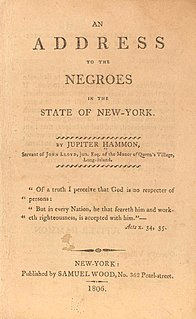A Quote by Ken Ham
I have met so many young people who do not see the church as relevant and do not consider the Bible a real book of history that can be trusted.
Related Quotes
The Bible judges the church; the church does not judge the Bible. The Bible is the foundation for and the creator of the church; the church is not the foundation for or creator of the Bible. The church and its hierarchy must be evaluated by the believer with the biblical gospel as the touchstone or plumb line for judging all truth claims.
In many ways we've become the Babylon of the modern era. We learned our lessons at the feet of Nebuchadnezzar himself. It's little wonder that we've lived to see Bible reading and the display of the Ten Commandments removed from public view and creation science excluded from classroom instruction. None of this is new. It has its roots in Babylon, and thus reveals that the book of Daniel is one of the most relevant books of the Bible in our world today.
To church in the morning, and there saw a wedding in the church, which I have not seen many a day; and the young people so merry one with another, and strange to see what delight we married people have to see these poor fools decoyed into our condition, every man and woman gazing and smiling at them.
So many people grew up in the church, and you can have an awesome upbringing, but I made a personal conviction; I made a personal decision when I was very young. I enjoy going to church without my parents. On Sunday mornings, I want to go. Bible studies on Wednesdays... I have a relationship - not just through my parents.
It's important for people in the Church to realize that the way they talk and think about the Bible isn't the way Bible scholars talk and think about it - and I'm including "Bible-believing" scholars there. There is a wide gap between the work of biblical scholars, whose business it is to read the text of the Bible in its own worldview context, and what you hear in church.
Then Jesus introduced Himself to me. Though my birth certificate reads 1983, I reckon I was born in 1999, when I met Jesus - not in a church or on a camp or through people, but alone in my bedroom with an open Bible and a tangible revelation that the Son of God was not only real, but alive and awesome and stronger than the chains that bound me.
If we might reverently imagine ourselves scheming beforehand what kind of book the Book of God ought to be, how different would it be from the actual Bible! There would be as many Bibles as there are souls, and they would differ as widely. But in one thing, amid all their differences, they would probably agree: they would lack the variety, both in form and substance, of the Holy Book which the Church of God places in the hands of her children.
I'd signed up not just for Christianity but the established Church of England. That has a particular history and I think we rather lost it in the 19th Century, we became so much part of empire and colonialism, the language of the Church Of England still reflects that Victorian time. As the 20th Century developed, not surprisingly people left the church and I can see the church's role in losing people.






































